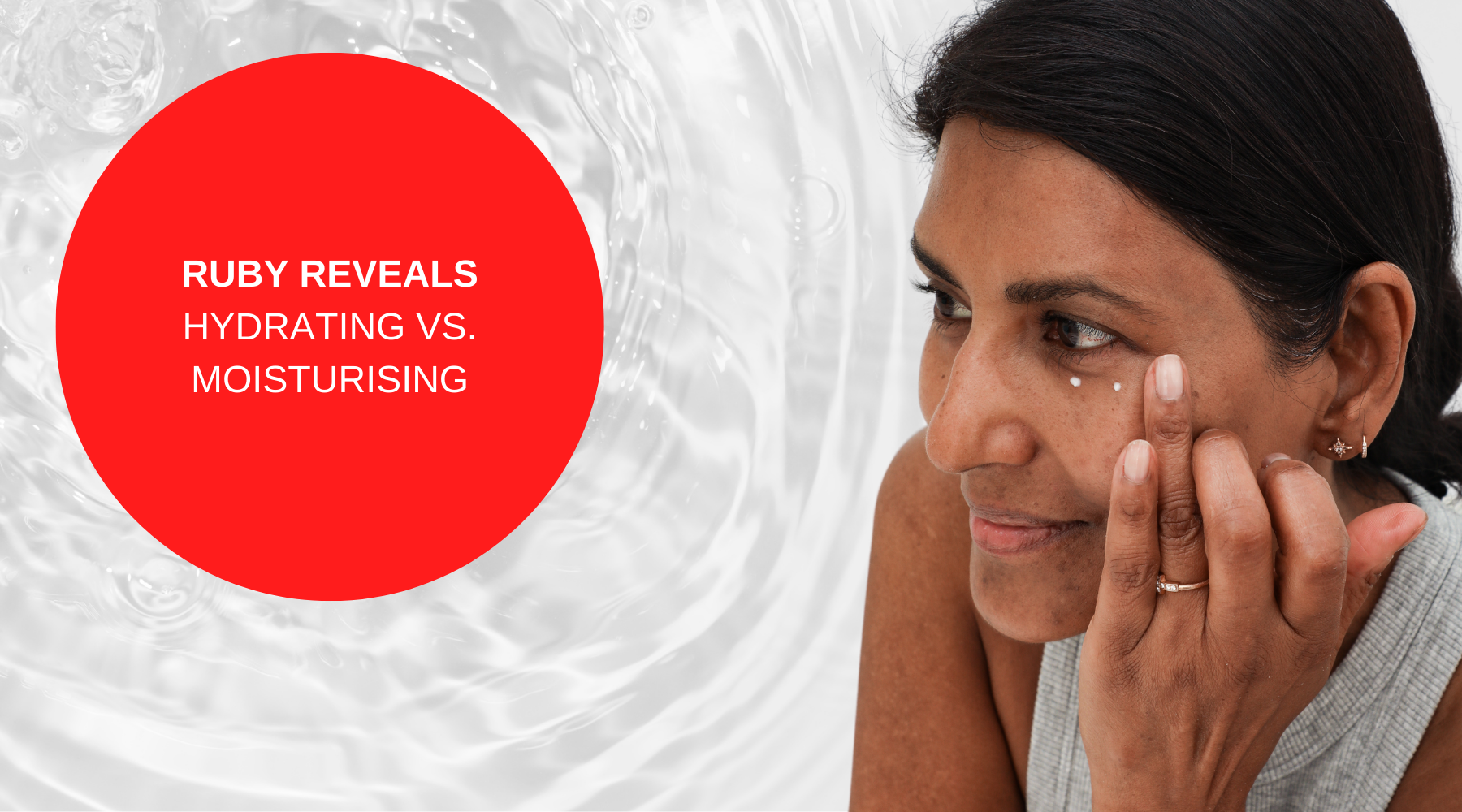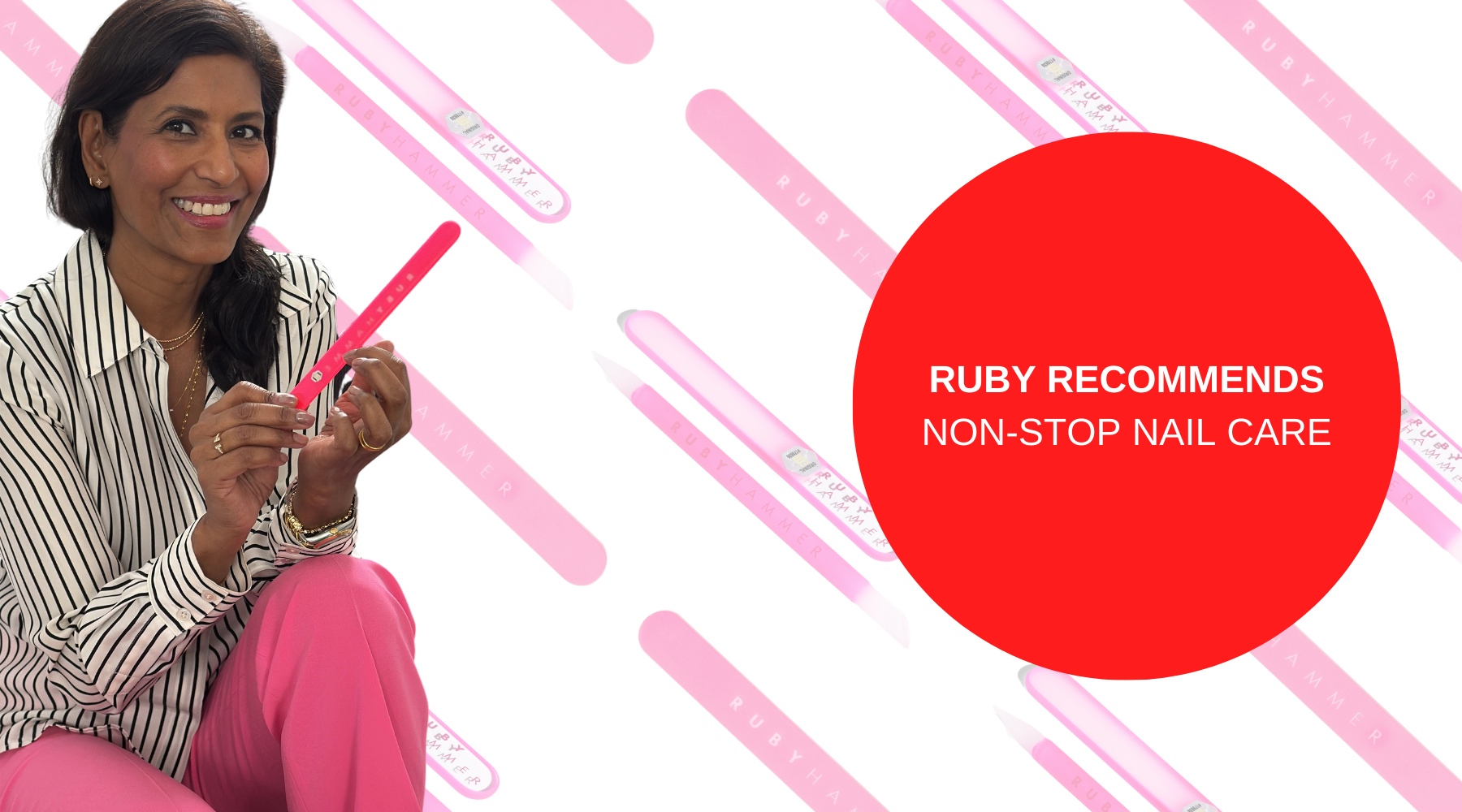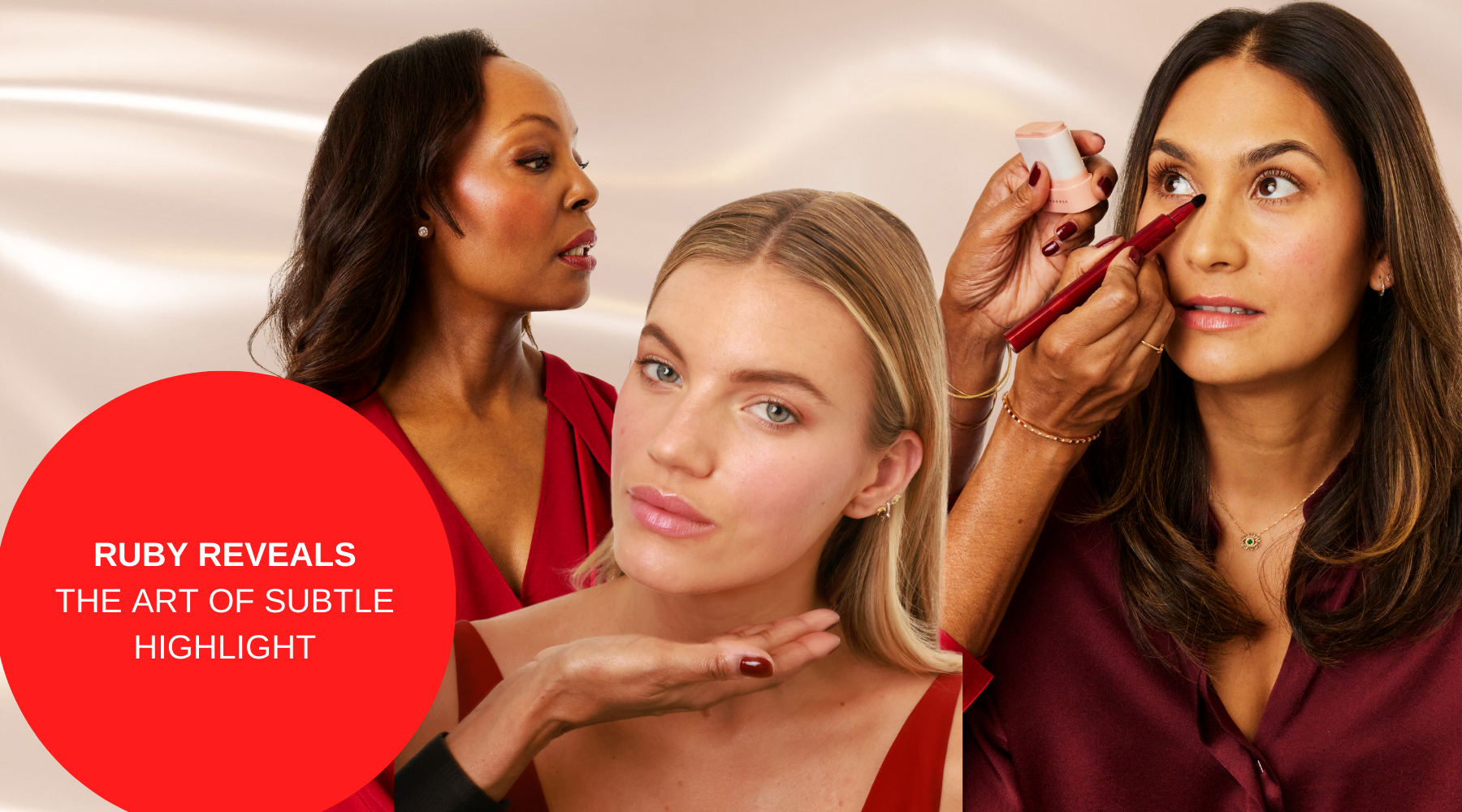
RUBY REVEALS | HYDRATION VS. MOISTURISATION WHAT'S THE DIFFERENCE?
As a makeup artist, I love talking about textures and finishes rather than the deep science behind our products. But because great skin is the foundation of great makeup, having a top-line understanding of skincare is key.
You’ll often hear me use the words ‘hydrating’ and ‘moisturising’—both help achieve that glowing, healthy skin we all love. But did you know they’re not the same thing?
Hydration | Boosting Your Skin’s Water Content
Hydration is all about water within the skin. While our skin naturally hydrates itself, internal and external factors can leave it feeling dehydrated. Hydrating products help replenish that water, keeping your skin plump and fresh.
Moisturisation | Locking in Hydration
Moisturisation is about sealing that hydration in. Instead of adding water, moisturisers create a protective barrier to prevent moisture loss and keep skin feeling soft and supple.
The Three Key Players in Moisturisation
Skincare ingredients work in different ways to keep your skin hydrated and moisturised. Here are the three main categories:
-
Emollients | These help soften and smooth the skin. Look out for plant oils and butters, fatty alcohols, silicones, ceramides, and squalane.
-
Occlusives | These create a protective layer on the skin, reducing water loss. A classic example? Petroleum jelly.
-
Humectants | These draw and hold water in the skin’s outer layer. Think glycerin, glycols, aloe vera, and hyaluronic acid.
How to Hydrate Your Skin
✔ Use Humectants – They pull water into the skin’s outer layer, keeping it plump and fresh. If humidity is high, they’ll even draw moisture from the air.
✔ Drink Plenty of Water – Hydration starts from within, so keeping your water intake up is essential.
✔ Apply a Hydrating Serum – A good serum supports your skin’s natural functions, drawing water to the surface and keeping it there.
How to Moisturise Your Skin
✔ Use Occlusives – These create a barrier that stops moisture from evaporating.
✔ Choose Emollients – Ingredients like ceramides, fatty acids, and squalane help smooth and soften the skin.
✔ Layer Your Skincare – Apply a hydrating serum first, then lock it in with a moisturiser. It’s not one or the other—your skin needs both.
No matter your skin type—oily, dry, or combination—keeping a balance of hydration and moisturisation in your routine is key to healthy, radiant skin.



2 comments
Hi Debbie, Please feel free to send me a photo so I can see your skin to understand it a little more. You are a year younger than me, but we could have totally different skin types so it is always good to get a little more information. I try a lot of products but the ones I always go back to include hyaluronic acid, retinol, niacinamide and peptides. I am currently using the Nip + Fab Peptide finishing oil which feels great on my skin. ♥️ Ruby
Ruby Hammer
Hi, could you recommend some products for me.
I’m 62, my skin is ageing.
It does need a hydrating product and moisture.
Thankyou
Debbie
Debbie Duffy
Leave a comment
This site is protected by hCaptcha and the hCaptcha Privacy Policy and Terms of Service apply.